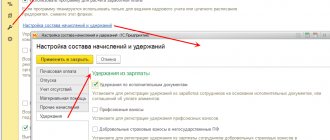Part-time work with the consent of the employer.
So, as follows from Part 1 of Art. 93 of the Labor Code of the Russian Federation, part-time work can be established by agreement between the employee and the employer. The initiator, as a rule, in this case is the employee.
The employee applies to the employer with a request to establish part-time work. The application should indicate the reason for changing the working hours (illness of a relative or the need for the employee to undergo a course of treatment, etc.), the period of work in this mode, the form of part-time work (part-time (shift) or part-time work week), as well as the number of hours by which the working day is reduced. The employee may attach to the application copies of documents confirming the need for such a regime. It is up to the employer to decide whether to install it for the employee or not.
If the decision is positive, an additional agreement to the employment contract is concluded with the employee, on the basis of which an order is issued to change the employee’s working hours to part-time.
How to calculate salary for a full month
When calculating salaries, it is important to remember one simple rule. If during a month a person who works part-time did not take vacations, sick leave, did not go on a business trip or skip work, then for this month he must receive the salary specified in his employment contract. In this case, it does not matter how many working days and hours are listed according to the standard production calendar. By the way, a similar rule applies to employees who have full working hours.
Example 1: salary calculation for a full month
According to the company’s local regulations, with a 40-hour work week, the cashier’s salary is set at 60,000 rubles. Anna Mikhailova's employment contract states that she has been hired as a cashier. At the same time, she has a 10-hour work week with the following schedule: 2 working hours daily from Monday to Friday, Saturday and Sunday are days off. According to her employment contract, Mikhailova’s salary is 15,000 rubles. per month.
In January, February and March 2021, Mikhailova had no vacations, sick leave, business trips or absenteeism. She worked all working days for 2 hours. For January, February and March she was credited with 15,000 rubles. per month.
Olga Fedorova’s employment contract states that she was hired as a cashier on a 40-hour workweek with a salary of 60,000 rubles. In January, February and March 2021, Fedorova had no vacations, sick leave, business trips or absenteeism. For each of these months she was credited with 60,000 rubles.
Part-time work for certain categories of workers.
For certain categories of employees, the employer is obliged to establish part-time working hours. First of all, these are the workers listed in Art. 93 Labor Code of the Russian Federation:
- pregnant woman;
- one of the parents (guardian, custodian) having a child under the age of 14 years (a disabled child under the age of 18);
- persons caring for a sick family member in accordance with a medical certificate issued in the manner established by federal laws and other regulatory legal acts of the Russian Federation.
In addition, by virtue of Art. 256 of the Labor Code of the Russian Federation, at the request of a woman while on maternity leave, she can work part-time or at home while maintaining the right to receive state social insurance benefits.
A similar right can be exercised by the child’s father, grandmother, grandfather, other relatives or guardian who is actually caring for the child.
The part-time working regime is introduced by the employer based on the employee’s application. Workers in these categories are not required to provide additional documents. An exception is for persons caring for a sick family member. They must attach to the application a medical report issued in the manner approved by Order of the Ministry of Health and Social Development of the Russian Federation dated May 2, 2012 No. 441n “On approval of the Procedure for issuing certificates and medical reports by medical organizations.” However, if employees did not provide the employer with documents about pregnancy or the presence of a child under the age of 14 (disabled child under 18) before submitting the application, they will have to be provided along with the application.
Here is a sample application.
To the Director of OJSC "Stroymarket"
V. M. Korotkov
from accountant I. V. Moreva
Statement
I ask you to establish a part-time working day for me during my pregnancy - to reduce the working day by three hours from December 14, 2015 until I go on maternity leave.
I am attaching a certificate from the Municipal Budgetary Institution "Women's Consultation No. 3" dated December 10, 2015.
12/08/2015,
Moreva
The employer also enters into an additional agreement with the employees who wrote the applications to change the working hours.
Additional agreement
to the employment contract dated October 13, 2014 No. 15/b
10.12.2015
Moscow
Open Joint Stock Company "Stroymarket" (OJSC "Stroymarket") represented by director V. M. Korotkov, acting on the basis of the Charter, hereinafter referred to as the Employer, on the one hand, and accountant Irina Vladimirovna Moreva, hereinafter referred to as the Employee, on the other hand, have agreed on the following:
1. Clause 2.2 of the employment contract dated October 13, 2014 No. 15/b should be stated as follows: “The employee is provided with a part-time working schedule:
- working week – five days, from Monday to Friday inclusive, with two days off (Saturday, Sunday);
- Duration of daily work – 5 hours, from 09.00 to 15.00;
- break for rest and food – 1 hour from 12.00 to 13.00.”
2. Clause 4.1 should be stated as follows: “Payment is made in proportion to the time worked based on a salary of 35,000 rubles. per month".
3. This agreement is valid from December 14, 2015 until the Employee goes on maternity leave.
4. This additional agreement is an integral part of the employment contract dated October 13, 2014 No. 15/b, drawn up and signed in two copies having equal legal force, one of which is kept by the Employer, the other is transferred to the Employee.
Employee: Employer:
Moreva
/Moreva I.V./
Korotkov
/Korotkov V.M./
A copy of the additional agreement has been received. Moreva, 12/10/2015
For employees listed in Art. 93 of the Labor Code of the Russian Federation, the condition on the duration of work during part-time work is established by agreement with the employer. But if an employee on parental leave expressed a desire to fulfill his duties part-time, the employer must accept his conditions, since Art. 256 of the Labor Code of the Russian Federation protects the rights of persons with family responsibilities that combine caring for young children with work, which is a source of income for them.
Thus, O.E., while on maternity leave, applied to the employer to establish part-time work of 39 hours a week. However, the employer issued an order and an additional agreement, which specified the duration of part-time work as 1 hour per day, from 8.00 to 9.00, and 5 hours per week.
As a result of the trial on O.E.’s claim, the court recognized that the employer’s actions to establish such a regime in the absence of the employee’s consent contradict labor legislation and violate the rights of an employee on parental leave. In this case, the court referred to the current Regulation on the procedure and conditions for the employment of women with children and working part-time, approved by the Resolution of the USSR State Committee for Labor, the Secretariat of the All-Union Central Council of Trade Unions dated April 29, 1980 No. 111/8‑51 (hereinafter referred to as the Regulation).
In accordance with clause 4 of the Regulations, part-time working time can be established by agreement of the parties, either without a time limit or for any period convenient for the employee - for example, until the child reaches a certain age. The provision is aimed at providing women with favorable conditions for combining the functions of motherhood with professional activities and participation in public life (clause 1).
Paragraph 7 of the Regulations notes that the work and rest regimes of women with children and working part-time are established by the administration, taking into account the wishes of the woman. In paragraph 8 - that labor regimes for part-time work may include, among other things, a reduction in the duration of daily work (shift) by a certain number of working hours on all days of the working week. When establishing part-time work schedules provided for by this paragraph, the length of the working day (shift), as a rule, should not be less than 4 hours and the working week - less than 20 - 24 hours, respectively, with a 5- and 6-day week. Depending on the specific production conditions, a different working time may be established.
Based on the foregoing, an employee who is on parental leave and has begun performing duties on a part-time basis has the right to choose a convenient working time during the shift, and the employer must take into account his wishes and establish a part-time work schedule of at least 4 hours and a working week of at least 20 - 24 hours, respectively, with a 5- and 6-day week (Appeal ruling of the Supreme Court of the Komi Republic of October 22, 2015 in case No. 33-5580/2015).
Who to install
According to the Labor Code, a shortened day is established for any worker with the consent of the employer. University students, especially senior students, often make this request - part-time work for students is beneficial to both the employee and the employer who forms the personnel reserve.
There are certain categories of citizens who cannot be denied a shortened working day: for example, if a woman on maternity leave works part-time. All of them are listed. 93 Labor Code of the Russian Federation.
The main preferential categories of employees are:
- pregnant woman;
- one of the parents or guardians, trustees who have a child under 14 years of age or a disabled child under 18 years of age;
- caring for a sick family member (a medical certificate of the established form is required).
A woman, while on maternity leave, by virtue of Art. 256 of the Labor Code of the Russian Federation has the right to work, but not all day: this will allow her to maintain her insurance benefits. But there are times when a mother is forced or prefers to go to work, and the responsibility of caring for the child is transferred to other family members: the father or even grandparents. In this case, they also have the right to receive benefits and work part-time.
Conditions for the introduction of part-time work by the employer.
By virtue of Art. 74 of the Labor Code of the Russian Federation in the case when, for reasons related to changes in organizational or technological working conditions (changes in equipment and production technology, structural reorganization of production, etc.), the terms of the employment contract determined by the parties cannot be preserved, they can be changed at the initiative of the employer , with the exception of changes in the employee’s labor function.
When these reasons may lead to mass layoffs of workers, the employer, in order to preserve jobs, has the right to introduce a part-time working day (shift) and (or) part-time working week for up to 6 months. In order for the establishment of part-time work on this basis to be recognized as legal, the employer must meet 2 basic conditions:
1. Presence of changes in organizational or technological working conditions in the organization. In accordance with paragraph 21 of the Resolution of the Plenum of the Armed Forces of the Russian Federation dated March 17, 2004 No. 2 “On the application by the courts of the Russian Federation of the Labor Code of the Russian Federation,” the employer is required to have evidence that a change in the terms of the employment contract determined by the parties was a consequence of changes in organizational or technological working conditions. Otherwise, changing the terms of the employment contract determined by the parties cannot be recognized as legal.
Quite often, employers cite the difficult financial situation of the organization as the reason for changes in working conditions. But this reason cannot be called valid, unless it served as the basis for organizational or technological changes.
2. The presence of a threat of mass layoffs of workers. By virtue of Art. 82 of the Labor Code of the Russian Federation, the criteria for mass dismissal are determined in industry and (or) territorial agreements.
For example, the Industry Tariff Agreement in the housing and communal services of the Russian Federation for 2014 - 2016[1] establishes that the criterion for mass dismissal when reducing the number or staff of employees is the dismissal of more than 10% of the organization’s employees at a time.
If industry agreements do not apply to the organization, one should be guided by the Decree of the Government of the Russian Federation of 02/05/1993 No. 99 “On the organization of work to promote employment in conditions of mass layoffs.”
According to Resolution No. 99, the criterion for mass dismissal is:
1. Reduction in the number or staff of employees of the enterprise in the amount of:
- 50 or more people within 30 calendar days;
- 200 or more people within 60 calendar days;
- 500 or more people within 90 calendar days.
2. Dismissal of workers in the amount of 1% of the total number of employees due to the liquidation of enterprises or reduction of numbers or staff within 30 calendar days in regions with a total number of employees of less than 5,000 people.
Thus, only if these two conditions are met, the employer can begin the procedure of changing the working hours of employees to part-time.
Is a working maternity leave entitled to regular paid leave?
GU MRO FSS of Russia, in a letter dated October 26, 2020 No. 10-22/7710-19477, explained whether an employee, while on maternity leave for up to 1.5 years and working on a part-time schedule, has the right to go on annual paid vacation.
Thus, annual paid leave is not provided when a woman is on maternity leave and at the same time receives child care benefits (clause 20 of the Resolution of the Plenum of the Supreme Court of the Russian Federation dated January 28, 2014 No. 1).
Officials note that the employee can choose one of the following options:
- be on parental leave and receive appropriate benefits;
- interrupt parental leave to use annual basic paid leave. In this case, the interrupted vacation can subsequently be resumed. The monthly child care allowance will be re-assigned.
Procedure for introducing part-time work.
First of all, the employer must issue an order justifying changes in organizational or technological working conditions as a basis for introducing such a regime. After this, an order is issued to change the terms of employment contracts with employees, in particular to introduce part-time work. The order should state the reasons for establishing such a regime, the form and duration of working hours and the period for which the corresponding regime is introduced.
Keep in mind: if the organization has a trade union, then when introducing part-time work, its opinion must be taken into account - send a copy of the order to the elected body of the primary trade union organization. Opinions are taken into account in the manner prescribed by Art. 372 Labor Code of the Russian Federation.
Please also note that according to Part 8 of Art. 74 of the Labor Code of the Russian Federation, changes in the terms of the employment contract determined by the parties, in particular the introduction of a part-time working regime, should not worsen the employee’s position in comparison with the established collective agreement or agreements.
According to Part 2 of Art. 74, the employer is obliged to notify the employee in writing about upcoming changes to the working hours and the reasons that necessitated such changes. Notifications must be sent no later than 2 months before changes are made.
Within 3 working days after making a decision to introduce part-time work, the employer is obliged to notify the employment service authorities in writing (Article 25 of the RF Law of April 19, 1991 No. 1032‑1 “On Employment of the Population in the Russian Federation”).
The form for notifying the employment service has not been approved, so the employer can send it in any form, indicating the number of employees who are assigned part-time work, the period for which it is introduced, and the reasons for the need for changes. But first, check - perhaps the form of such notifications is determined by regional employment centers.
So, if an employee agrees to work under new conditions - part-time, an additional agreement to the employment contract is concluded.
If the employee refuses to continue working under such conditions, the employment contract with him is terminated under clause 2, part 1, art. 81 of the Labor Code of the Russian Federation after the expiration of the warning period about the introduction of part-time work, that is, according to the rules for reducing the staff or number of employees of the organization. According to Art. 74 of the Labor Code of the Russian Federation, the employee must be provided with all the guarantees and compensation provided for persons dismissed due to a reduction in staff or number of employees.
This is where the difficulties arise. Is it necessary to notify employees again 2 months in advance, but this time about a reduction in numbers or staff? In total it will be 4 months...
Since there are no special comments on this issue, we recommend that, simultaneously with warning employees 2 months in advance about the introduction of a part-time working regime, they also warn about the possibility of dismissal after 2 months under clause 2 of part 1 of Art. 81 of the Labor Code of the Russian Federation in case of refusal to continue work under new conditions.
If the employer has established a part-time working regime for a certain period, then there is no need to take any actions or prepare documents, the said regime will end automatically. But if the employer decides to cancel it earlier than the deadline, the opinion of the trade union will have to be taken into account again. In addition, it will be necessary to issue an order to abolish the part-time regime and enter into new additional agreements with employees.
How to pay wages when working part-time
Salary is calculated in proportion to the time worked. Let's say, when hired part-time, an employee of 60,000 rubles will receive only 30,000 rubles. Taxes are calculated based on actual salary.
Other work bonuses remain the same as with a full-time salary. An employee takes 28 days off every year, receives a salary twice a month and paid sick leave. The length of service for a pension is considered unchanged. At a part-time rate, there is even a lunch break of at least 30 minutes if the shift is more than 4 hours (Letter of the Ministry of Labor of the Russian Federation dated November 17, 2017 No. 14-2/B-1012).







